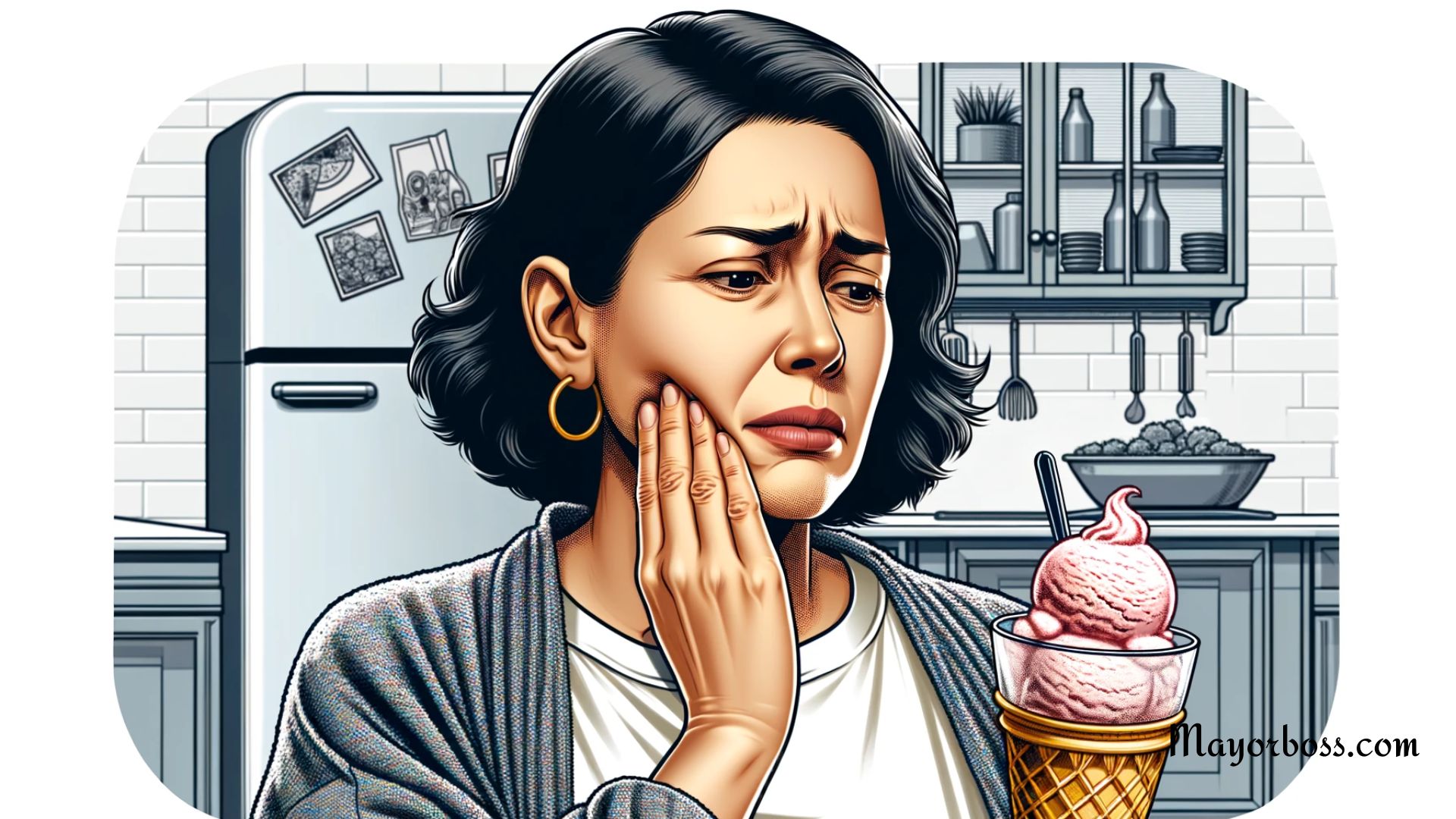This Is Why Your Teeth Are Sensitive To Cold Food
Have you ever bitten into a scoop of ice cream or sipped a cold drink and felt a sudden, sharp pain in your teeth? If so, you’re not alone. Many people experience tooth sensitivity to cold foods and drinks. But what exactly causes this discomfort?
Understanding Tooth Sensitivity
Tooth sensitivity, often known as dentin hypersensitivity, occurs when the dentin, the layer beneath the tooth enamel, gets exposed. Your tooth enamel, the hard, protective outer layer, acts as a shield against various temperatures and chemicals. Beneath the enamel is the dentin, which is less dense and contains tiny tubes (dentinal tubules) leading to the nerve of your tooth.
Causes of Enamel Erosion
Now, you might wonder, how does the enamel wear away? Several factors contribute to this:
- Acidic Foods and Drinks: Regular consumption of acidic substances, like citrus fruits, soda, or wine, can erode enamel over time.
- Brushing Too Hard: Brushing your teeth too vigorously can gradually wear down the enamel.
- Tooth Decay: Cavities can erode the enamel and expose the sensitive dentin.
- Gum Recession: When gums recede, they leave the root of the tooth, which is covered in cementum, not enamel, exposed. This area is particularly sensitive to temperature changes.
The Mechanism Behind Sensitivity to Cold
When your enamel is worn down or your gums have receded, the dentinal tubules are exposed. These tubules are directly connected to the nerve of your tooth. So, when you eat or drink something cold, the temperature change transmits through these tubules straight to the nerves, causing a short, sharp pain.
Why Cold Triggers Pain
The nerves in your teeth are exceptionally sensitive to changes in temperature. They react strongly to cold stimuli as a protective response. It’s like your teeth’s way of saying, “Hey, something’s not right here!”
Managing Tooth Sensitivity
Fortunately, there are ways to manage and reduce tooth sensitivity:
- Desensitizing Toothpaste: These kinds of toothpaste, like Pronamel and Sensodyne, contain compounds that block the transmission of sensation from your tooth surface to your nerve.
- Soft-Bristled Toothbrush: Switching to a softer toothbrush can help prevent further enamel erosion.
- Good Oral Hygiene: Keeping up with your oral hygiene can prevent conditions like tooth decay and gum disease, which contribute to sensitivity.
- Fluoride Treatments: Your dentist might recommend fluoride treatments to strengthen your enamel and reduce sensitivity.
- Avoid Acidic Foods and Drinks: Try to limit acidic substances in your diet to protect your enamel.

When to See a Dentist
If your tooth sensitivity is severe or doesn’t improve with over-the-counter treatments, it’s important to see a dentist. They can assess your teeth for underlying issues like cavities or gum disease and provide appropriate treatment. Remember, tooth sensitivity can be a sign of other dental problems, so it’s always better to get it checked out.
